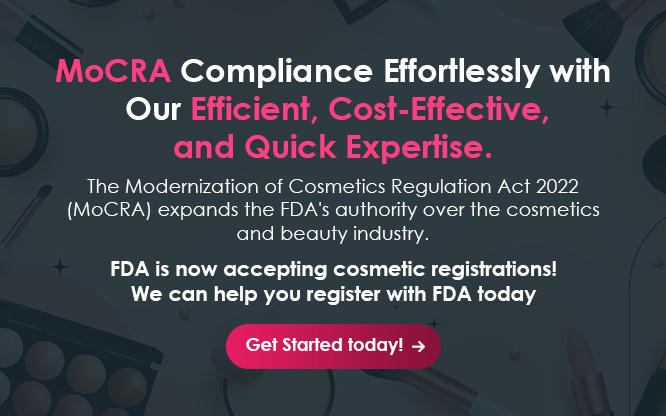December 13, 2023

The South Korean pharmaceutical industry is one of the most dynamic and innovative industries in Asia. The country is strongly committed to Research and Development(R&D), and its Regulatory framework is designed to facilitate the development and approval of new drugs.
However, foreign pharmaceutical companies might find the drug approval process in South Korea complex and challenging. To make it easy for you, here we provide a few of the most Frequently Asked Questions (FAQs) on the drug approval process in South Korea.
- What is the MFDS in South Korea? The Ministry of Food and Drug Safety (MFDS) is South Korea’s key Regulatory authority responsible for regulating pharmaceuticals, medical devices, food, and cosmetics. Its primary mission is to protect public health by ensuring the safety, efficacy, and quality of these products.
- What are the different types of drug approvals in South Korea? There are three (03) types of drug approvals in South Korea:
- New Drug Approval (NDA)/Biological License Application (BLA): This is the most rigorous type of drug approval and is required for all new drugs (including both chemical and biological products) that have not been previously marketed in South Korea.
- Generic Drug Approval: This type entails a streamlined process for the approval of generic drugs (drugs that are equivalent to previously approved brand-name drugs).
- Biosimilar Drug Approval: This process is applicable for the approval of biosimilar drugs (drugs that are equivalent to previously approved brand-name biological products).
- What are the requirements for submitting a drug application in South Korea? There are varied requirements for submitting a drug application in South Korea. The NDA/BLA application package consists of several dossier packages. For example, the safety and efficacy review, the CMC review (DS & DP), the GMP review, and the administrative review. These dossier packages cover a wide range of topics, including bridging data and GMP site inspection.
- What is the role of the GCP regulations in the drug approval process in South Korea? The Good Clinical Practice (GCP) regulations in South Korea are designed to ensure that clinical trials are conducted ethically and in a way that protects the rights of the human subjects. The MFDS often inspects clinical trial sites to ensure that sponsors are compliant with GCP regulations during the NDA/BLA review process.
- What are the post-approval requirements for drugs in South Korea? License holders of NDA and BLA applications in South Korea are required to submit periodic safety reports and periodic risk management plan reports (including Post-marketing Surveillance [PMS] results). The MFDS may also request additional post-marketing clinical study results in case of accelerated approval.
- What is the role of the KODC in the drug approval process in South Korea? The Korea Orphan Drug Center (KODC) is a government agency that provides support to developers of orphan drugs, which are drugs that are intended to treat rare diseases. The KODC facilitates the purchase of unapproved orphan drugs from foreign countries.
- What is the role of the CPAC in the drug approval process in South Korea? The Central Pharmaceutical Affairs Council (CPAC) is an advisory body that provides expert advice to the MFDS on the safety and efficacy of drugs. The role and responsibility of the CPAC are similar to that of the United States Food and Drug Administration’s (US FDA’s) Advisory Committee, which comprises scientists, physicians, and other experts.
- Does South Korea offer any expedited pathways for drug approvals? Yes, South Korea offers a few expedited pathways for drug approvals, such as:
- Priority Review: This pathway is available for drugs that treat serious or life-threatening conditions and offer significant benefits over existing therapies.
- Conditional Approval: This pathway allows for the early marketing authorization of drugs based on promising but limited clinical data against the condition that further post-marketing studies will be conducted.
- Breakthrough Therapy Designation: This designation is provided to drugs carrying preliminary clinical evidence of substantial improvement over existing therapies for serious or life-threatening conditions, and designated drugs would go through a priority review.
- Can foreign pharmaceutical companies apply for drug approvals in South Korea? Yes, foreign pharmaceutical companies can apply for drug approvals in South Korea. However, they must have a local representative in South Korea who can handle the application process and ensure compliance with all the relevant regulations.
- Does the MFDS offer any incentives for the R&D of new drugs in South Korea? No, the MFDS offers limited support to pharmaceutical companies. It provides only Regulatory assistance for drug development planning and grants some benefits to innovative companies in Korea.
- What are the recent trends in the drug approval process in South Korea? Many changes are underway in the drug approval process in South Korea, including:
- Increased focus on patient-centered drug development.
- Accelerated drug approvals for unmet medical needs.
- Increased use of digital technologies for Regulatory purposes.
- Harmonization with international drug Regulatory standards.
Are you looking for expert assistance to streamline your drug registration process in South Korea? Freyr’s team of experts can help you every step of the way. Contact us today!


